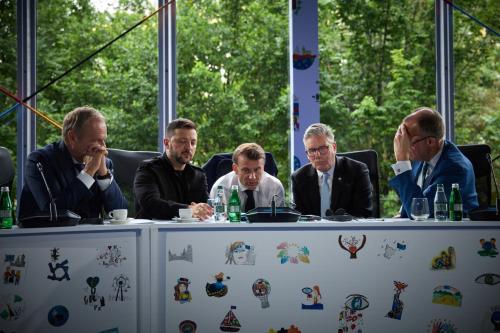The twentieth anniversary of the fall of the Berlin Wall on November 9 has become, in the minds and pronouncements of many, a celebration of Ronald Reagan’s starring role in the demise of the Evil Empire. For example, a new book by Romesh Ratnesar (Tear Down This Wall: A City, a President, and the Speech that Ended the Cold War) argues that the four-word dare that Reagan hurled at Mikhail Gorbachev in June 1987 catalyzed the forces that led to collapse of the East German regime a little more than two years later. In a speech that Newt Gingrich gave on the anniversary titled, “The Victory of the Cross: How Spiritual Renewal Helped Topple the Berlin Wall,” he was expected to say that Reagan’s “constant moral and material support for the cause of freedom” undermined the Iron Curtain.
But the real world-historical hero of that whole episode was Mikhail Gorbachev himself. If he had lost out in 1985 to any of his rivals for the top job in the Kremlin—the Moscow or Leningrad party chiefs, for example—we’d probably still have a cold war and, quite possibly, a divided Berlin. Gorbachev, now 78, made an appearance at the commemorative ceremonies in Berlin on Monday, as did Russian President Dimitri Medvedev.
Two other decisive figures were Reagan’s and Gorbachev’s successors.
President George H.W. Bush served as a calm—and calming—air traffic controller, guiding an increasingly dispirited Gorbachev as he piloted the Soviet state in for a soft landing on the ash heap of history.
And had Boris Yeltsin not stood up to the hard-line communists who briefly ousted Gorbachev in 1991, the Soviet Union—and the Soviet system—might have survived. In which case, there might still have been a celebration of freedom in Berlin this week, but there would probably not have been anyone from Moscow in attendance.
The Brookings Institution is committed to quality, independence, and impact.
We are supported by a diverse array of funders. In line with our values and policies, each Brookings publication represents the sole views of its author(s).



Commentary
The Four Who Ended the Cold War
November 9, 2009